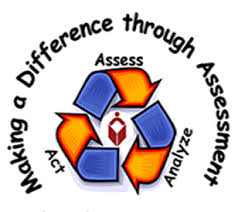| |
|
•
NEWS
• SEARCH
|
|
|
Four Reasons To Do Board Assessments
A strong and effective board of directors is a sign of a healthy organization. A periodic check-up can ensure that you are not just surviving but thriving in today’s environment. To check your board’s critical performance, or to put in place practices and strategies  for a healthy and energized board, the best place to start is with a board assessment. While evaluation is considered a worthwhile goal, how many boards do this themselves? Is it worth the time and effort - especially if everything appears to be working well? Here are four reasons why, even in the best of times, the answer is assuredly “yes.” for a healthy and energized board, the best place to start is with a board assessment. While evaluation is considered a worthwhile goal, how many boards do this themselves? Is it worth the time and effort - especially if everything appears to be working well? Here are four reasons why, even in the best of times, the answer is assuredly “yes.”
- Reaching Peak Performance: Conducting a self-evaluation and assessment for the board is similar to evaluating the performance of a top executive: you start with a job description, and perform a periodic performance evaluation against that description. Boards are no different – the best boards continue to build on what they are doing well, and develop in areas that need strengthening, to reach peak performance. A recent study found that Boards that do a self-assessment are 72% more likely to understand the board’s roles and responsibilities; those that don’t are only 57% likely to have this understanding. Boards that regularly self-assess are also more likely to evaluate the executive director (72% vs. 52%). Additionally, self-evaluation increases the likelihood that meaningful strategic planning is occurring (73% vs. 57%), and even fundraising improves (by 7%). See Leading with Intent: A National Index of Nonprofit Board Practices (Washington, D.C.: BoardSource, 2015).
- Educating: Developing the criteria for the board to evaluate itself also forces boards to think about what it is they are doing or should be doing. It is part of an ongoing educational process. What are your board’s benchmarks for success? What are the board’s responsibilities? What are the fiduciary, managerial or fundraising roles? Do the agendas and meetings focus on important strategic and generative issues rather than mundane reports? Do the board members reflect the diversity of the community it serves? Does fundraising capacity need to improve? The process of developing questions and indicators for board evaluation helps the board identify its own standards for top performance, often with reference to the large body of knowledge that exists about effective board practices.
- Energizing and Teambuilding: One sometimes hears board members complain that they do too much listening, and not enough participating in leading the organization. Developing and doing the self-evaluation and assessment process is an active step that often energizes the entire board. Promoting honest conversations around these topics gets them out in the open without any hidden agendas. It helps build the board members’ trust and relationships among each other. For example, the board member's lack of participation in fundraising efforts would be easier to discuss through the use of this assessment model, if it is done in a constructive rather than a critical manner; it can move the dialogue forward on a broad range of issues.
- Creates a Road Map: The results of the assessment will point to strengths, such as fiduciary or financial knowledge among board members, or a dynamic committee structure, that can become building blocks for new endeavors. It will also help the board determine what needs further development or training (planning, fundraising , recruitment governance etc. comes to mind), how to do better recruitment and orientation going forward, and how to build self-assessment into an ongoing part of the board’s process. All of these outcomes can help build the board’s goals and objectives for the coming year, and time can be set aside at a retreat to discuss, train or further develop operations.
It is worth noting that an evaluation at a time of crisis may not be appropriate, but if you have just added or are about to add new members, an assessment can be a good introduction to what it means to be an effective board member today. Self-assessment and evaluation is not only worthwhile, but a critical component to ensure your board is functioning at its highest level and working to accomplish its mission.
If you would like more information about Zimmerman Lehman’s online assessment please contact us.
Sample Management Questions
Please indicate the extent to which you agree or disagree (scale of 1-5 five being agree strongly) with the following statements.
- Does the board monitor and evaluate the performance of the executive director on a regular basis (at least every other year)?
- Do all members participate on some level in the evaluation?
- Are annual performance goals set by the board and CEO
- Does the board review the compensation package of top executives for reasonableness?
- Is the process of review and compensation documented in writing?
- Is there a succession plan in place?
- Are board members discussing organization-wide policy issues, rather than managing the day-to-day affairs of the organization (i.e., not micromanaging the staff)?
- Does the board review personnel policies periodically?
- Has the board ensured a whistle blower policy exists?
- Has the board ensured a document destruction policy exists?
Is there anything you can share about the board in this area? Do you have suggestions for improvement?
Copyright
2016 Zimmerman Lehman.
This information
is the property of Zimmerman
Lehman. If you would like to reprint this information,
please see our reprint
and copyright policy.
| |
|






